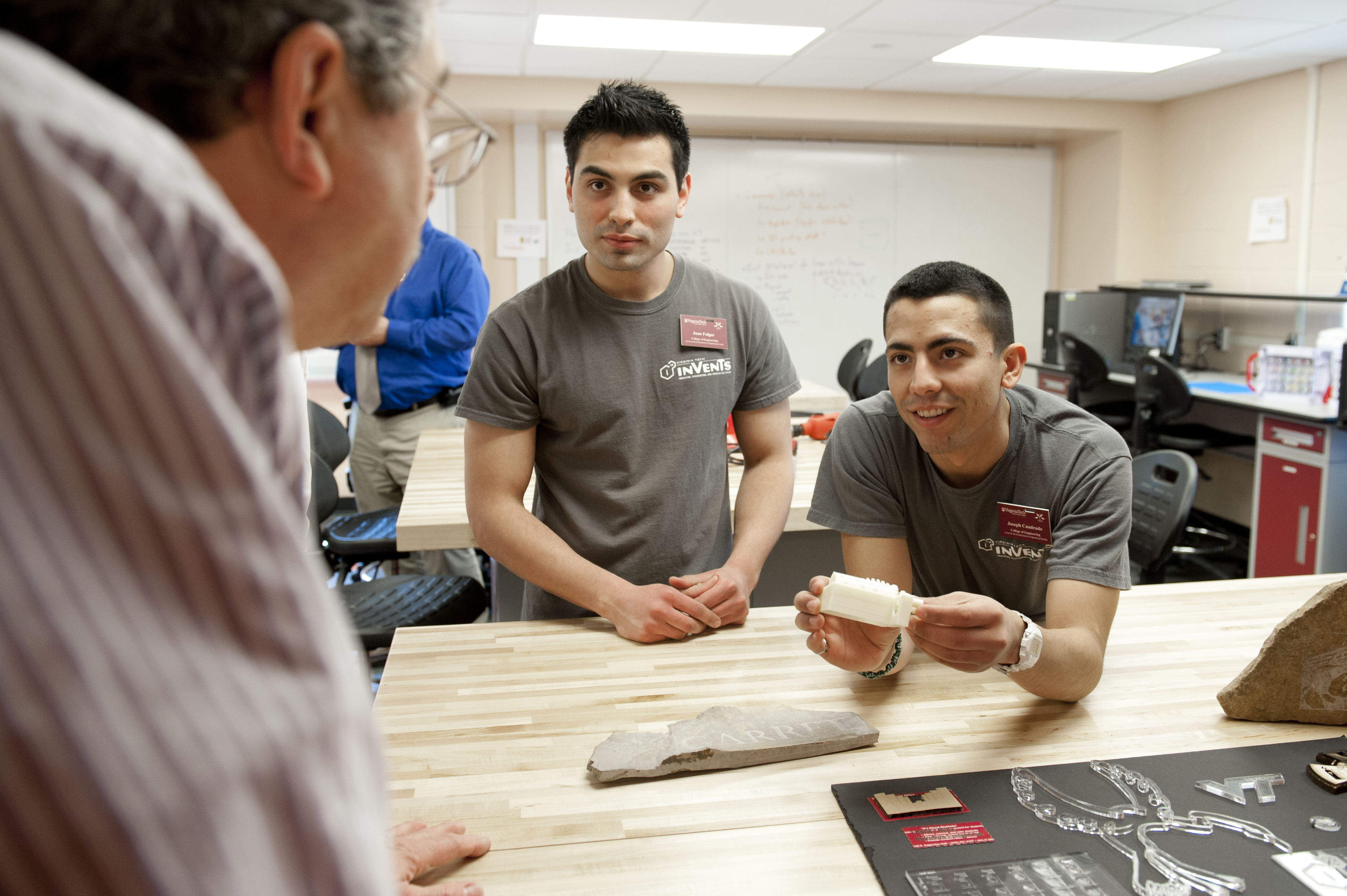First Year Experiences: Living-learning communities connect discipline of science to a global perspective

Two living-learning communities – Da Vinci: The Biological Life Sciences Community and Curie Learning Community which are part of the larger branch community, inVenTs – will use the principles of the First Year Experience to get students to think about their discipline within a broader global perspective.
While students who previously lived in the communities were required to take a seminar course, the course this year will include some changes as a reflection of the communities’ new partnership with the Office of First Year Experiences.
“The financial resources, training, development, and support that comes with a First Year Experience course will be a big boost for these programs,” Assistant Provost for Undergraduate Education Jill Sible said. Curie is also supported by a National Science Foundation grant.
Students in both communities will take the seminar in the fall and spring semesters. The course will be focused around the three learning outcomes for all First Year Experiences courses: problem solving, inquiry, and integration of learning skills.
For problem solving, the students will complete projects such as their Pathways Planner, which helps them lay out the courses they need to take and when. Students will also do career exploration with strength finding tools from Career Services and hear about a wide variety of scientific careers from guest speakers. “We can tie the strengths found in the survey tools to what they may be able to do in the future for their career,” said Debbie Wilson, director of the Curie community and program and event coordinator for Career Services.
University Libraries will provide workshops to the class as part of the inquiry objective, teaching students about primary research and finding reliable sources. As part of the course’s global theme, students will put their inquiry training to work. They will work in teams and research a “grand challenge” of interest from the White House’s 21st Century Grand Challenges website.
In addition, as part of the broader inVenTs community, Da Vinci and Curie students will collaborate with engineering students to find creative ways to solve challenges in several design competitions held in the state-of-the-art design lab located in the community's residence hall, Lee Hall.
The integration component will aim to get students to think beyond their discipline to the bigger global picture. The Common Book will be one method used. This year’s book, “Little Princes,” is an account of the author’s trip to an orphanage in a war-torn Nepal and his efforts to reunite the children with their parents.
Lori Blanc, director of Da Vinci and research scientist in the Department of Biological Sciences, said they will expand on the Common Book with a guest speaker, Jane Lillian Vance, an internationally acclaimed Blacksburg artist and instructor in the Department of Religion and Culture, and her collaborator Jenna Swann, a teacher in the Montgomery County, Va., school system. They will talk about their documentary, “A Gift for the Village,” which chronicles the presentation of one of Vance’s paintings to a remote village in Nepal.
“We hope to get students to see how the integration of other disciplines such as the arts and engineering can inform and combine with science to be creative when solving problems,” Blanc said. “Science doesn’t occur in a bubble. It occurs in the communities of human beings with problems that are greater than just a scientific component.” During the spring semester, students will collaborate with VT Engage and participate in service-learning projects to apply this principle. Students will also learn about study abroad opportunities and gain exposure to guest speakers who have international research programs.
A unique perspective for this First Year Experience course is integration of a residential component. “It’s all very organic in the community sense,” Sible said. “They eat together, play together, and solve problems together.”
While the communities are formed in a shared interest of science, the goal of this course is to help students make a successful transition from the expectations of high school to college. Through the learning experiences centered on problem solving, inquiry, and integration, Wilson and Blanc hope to motivate students to take initiative for their education, community, and life.
“We want to break them out of the cycle they may have experienced prior to college where they look to others for a list of what they’re supposed to do,” Blanc said. “Don’t just hope that you have a great day, create a great day. So much of what happens in the world does so because people make it happen. The only way good things are going to happen in your life is if you take the initiative. In Da Vinci and Curie, we want to provide students with the skills, confidence, and community of support to empower them to make great things happen in their lives and inspire them to step up and invent the future.”
Dedicated to its motto, Ut Prosim (That I May Serve), Virginia Tech takes a hands-on, engaging approach to education, preparing scholars to be leaders in their fields and communities. As the commonwealth’s most comprehensive university and its leading research institution, Virginia Tech offers 240 undergraduate and graduate degree programs to more than 31,000 students and manages a research portfolio of $513 million. The university fulfills its land-grant mission of transforming knowledge to practice through technological leadership and by fueling economic growth and job creation locally, regionally, and across Virginia.

inVenTs Residential Community's design lab
Members of the Da Vinci and Curie living-learning communities will take part in a First Year Experiences course for the first time this year. Both communities are part of a larger community, inVenTs, which brings together science and engineering students. The inVenTs Residential Community provides students access to a state-of-the-art design lab in Lee Hall where they live.






